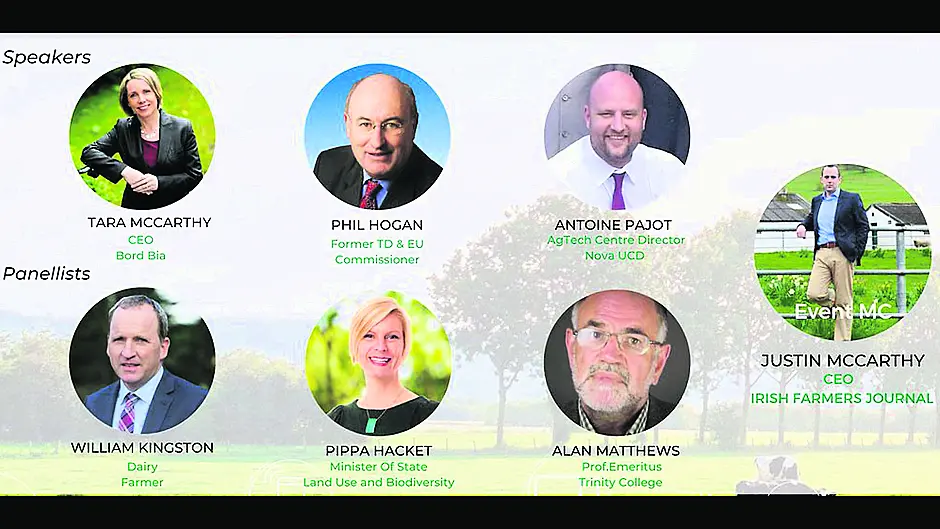A YOUNG farmer setting out his business plan for the coming 15 years would be advised to plan on the basis that significant investment and progress has to made in the area of water quality.
That’s according to former EU Trade Commissioner Phil Hogan who was speaking at last week’s Ludgate AgriTech event.
In what was one of his first public events since the GolfGate saga, which saw him resign his EU position, Mr Hogan said water quality was an area that had to be taken more seriously in terms of investment by farmers.
Referring to a recent water quality report by the EPA, which found the quality of almost half of river sources in Ireland to be unsatisfactory and the number of pristine waters falling to an all-time low, he said: ‘Clean water is not an optional extra.’
Addressing the country’s 7,000 dairy farmers who avail of the nitrates derogation, which will be reviewed next year he said: ‘It will be a challenge, against the background of the EPA water quality report, to get the right result and a balanced outcome.’
Fundamentally, he said young farmers should be aware that more constraints will be required in relation to water quality, but he said farmers should also be incentivised.
Irish Water need to be given a lot more capital funding, he said, but everybody needs to play their part.
‘The farmer has to be incentivised to ensure that the soil conditions and water quality are married together for the benefit of everybody,’ said Mr Hogan.
He spoke at length about the future of CAP and said that while the budget is protected, it’s only safeguarded on the basis of farmers delivering on societal concerns.
‘That’s a political reality,’ he said, adding that there were challenging environmental targets to be met in the years ahead, which may be legislated for. ‘But there’s many people who take the lazy temptation to demonise farmers in relation to activities in the environment, especially dairy farmers, but I’ve always put them at the centre of the solution rather than being part of the problem.
‘I’ve always argued the point with my fellow commissioners, and asked “Who are the people who are going to deliver on the land, to deliver the biodiversity and landscape strategy, the better soil conditions, and reduction in emissions if we don’t have farmers centrally involved as part of the solution?” So we have to incentivise and reward them for doing so.’
Nonetheless, consumers are demanding more information about the production systems, and sustainability of farmers and they would be very wise to listen to that message, he said.
Head of Bord Bia, Tara McCarthy, who opened the event, also spoke of increasing levels of transparency and proof points required of dairy farmers so her organisation can position their produce at the premium end of the market.
In a few years time, she agreed, that the value of milk won’t just be about its fat and protein content, but about its sustainability and environmental credentials which customers are prepared to pay for.
‘But they will demand transparency, verification of every commitment and promise that we’re giving.’
She described their audit process for the farming communities as the biggest friend that Bord Bia has, which gives them 53,000 examples of how farming is behaving.
‘That is not to paint a fool’s paradise … we will continuously have to get better. The world is going to demand more of us and we will have to act as one. This is not a Bord Bia gig, this is not farmers being isolated, this is our industry working as one.
‘It’s only when we are divided that we’re conquered, but when we’re acting as one, with streamlined processes and data sets that we can stand over, that’s when we can put our best foot forward.’
Other speakers included Antoine Pajot, Ag Tech Centre Director, Nova, UCD, who mentioned specific agritech innovations, including Hencol weighing stations for cows which can result in less fodder consumption and reduced greenhouse gases.
He also spoke of Cattle Eye, an artificial intelligence monitoring platform which will result in a more efficient herd, and a portable collar for cows called ZELP (Zero Emissions Livestock Project) which is designed to oxidise their burps into carbon dioxide and water.
The annual Ludgate event was held in association with AIB.








